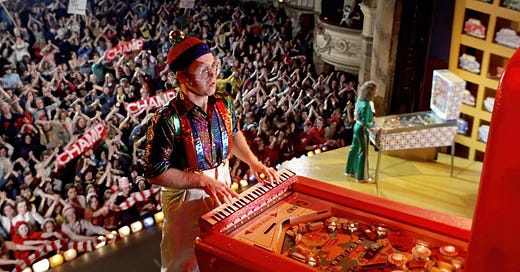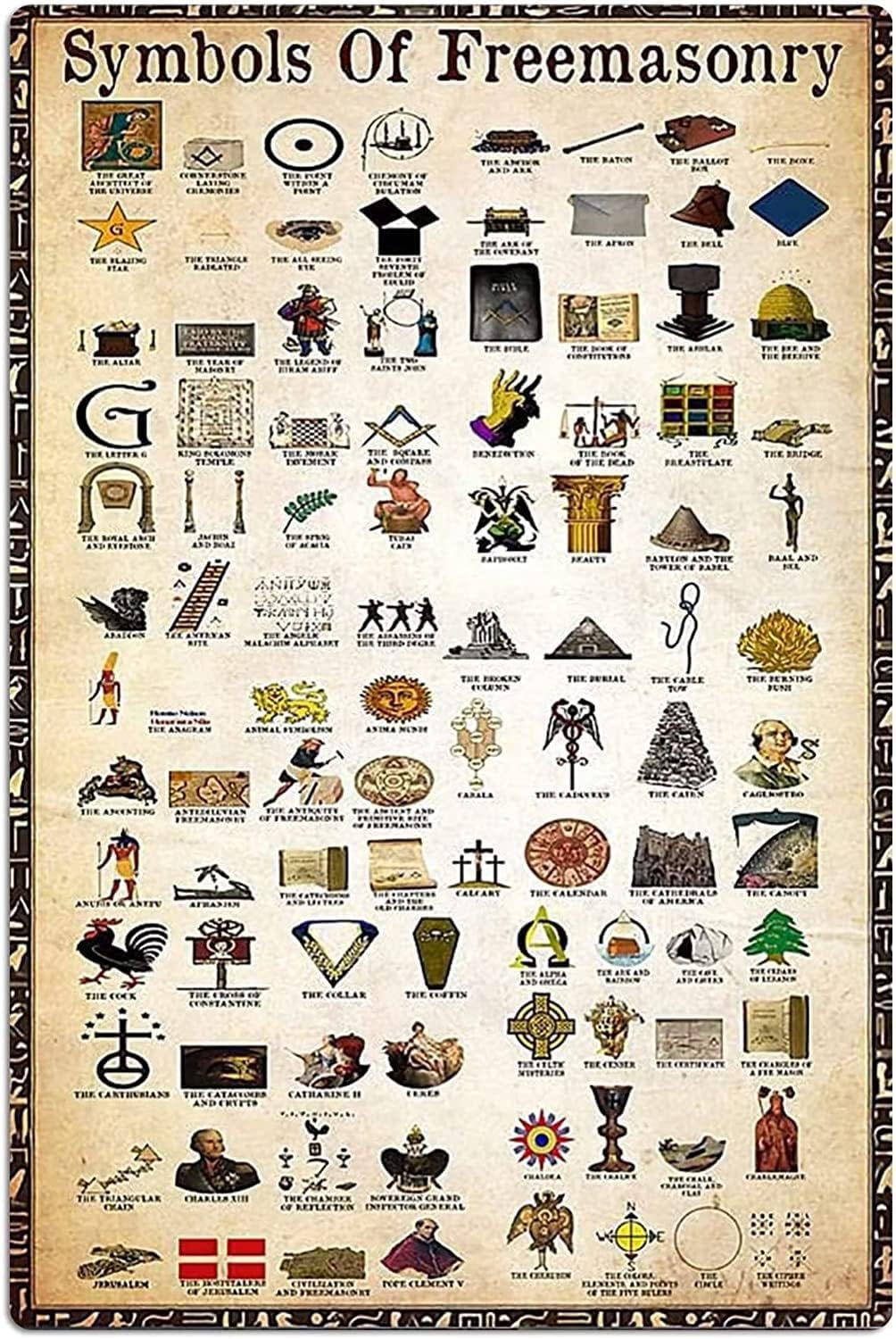Pinball Wizard Politics
In this post-election moment, it’s worth remembering that time is the real battleground. Progress doesn’t unfold in a single, triumphant leap or stumbling block along a tidy, straight line.
In this post-election moment, it's a difficult truth that time is the main dimension to be concerned with. Progress does not happen in a moment or in a straight line. But by definition, it happens over time.
Often progress careens from pillar to post by necessity as we collectively explore ideas and directions. So today we crash off the right wall, which will counterintuitively push us ultimately toward a new centre and new left yet unimagined — shaped by ideas we can’t yet imagine. That’s how the pendulum swings. It’s not a sign of failure but of growth, the machine won't tilt, it's an ongoing experiment in the messy art of self-governance.
So let’s take the long view. This moment, however unsettling or exhilarating, is part of a bigger story, one that stretches far beyond a single election. Progress, so intertwined with the great rolling intellectual machine of democracy, isn’t a destination; it’s a process. And we’re all in it together.
The Not-totally Silent Majority
Yesterday I wrote about a Silent Majority - how it was by definition unknown, unheard, and unseen. Though many claim to speak for them, that's just husksters talking. But when pressed, such as at election time, they speak for themselves, then return to their lives that largely don't include politics or social media.
But they didn’t just appear overnight. Trump voters come from a mix of backgrounds—conservatives, rural folks, working-class families, small business owners, veterans, immigrants, and even some LGBTQ, Hispanic, and Black voters tired of being defined by a machine beyond their control.
They’re not out to destroy the country or the world; they believe they’re saving it. Whether it’s about jobs, taxes, international relations, society, law and order, or economic concerns, they see his America First approach as a defense of their values, livelihoods, and way of life.
Dismiss them as villains, and you miss the bigger picture: they’re part of a broad coalition that feels unheard and underestimated in the narrowcast noise we call life. Today, just for a moment, they’ve made their voice known.
And while it’s easy to focus on Trump himself, this movement isn’t really about him. It’s about having someone—anyone—willing to stand up to the roar of the chattering classes and fight for the ideas, values, and goals of a silent majority that feels overlooked and openly frustrated with the current line of talk and direction of play. Right now, it’s hard to imagine anyone else taking the fiery heat and carrying that banner but he’s just a symbol no different than the cheap flags and noisy fireworks.
One of the most difficult aspects of a culture based on novelty and spectacle is keeping track of the difference between the symbol and the thing symbolized. This is as true for the citizen electorate as it is for the few who themselves become the symbols.
Beyond voting, elections and the cross lights that flash around us now the citizen’s job is to fight back against institutions where the symbol comes to mistake itself for the thing symbolized.
You’re Not The Boss of Me
There’s a strong case to be made that in modern democracies, we often place excessive emphasis on leaders like presidents and prime ministers, mistaking them for the embodiment of national power or the singular agents of change. This focus is at odds with the design of many democratic systems intended specifically to preclude kings and potentates, which aim to distribute power across institutions, making these leaders more symbolic than sovereign.
Historical Context
The evolution of democracy deliberately moved away from centralized power. Systems like constitutional monarchies and parliamentary democracies were designed to weaken the authority of a single individual, ensuring that power rests with the people and their representatives. Leaders were never intended to be monarchs or autocrats but facilitators and executors of an ever-changing and changeable collective will.
The Role of Leaders as Symbols
Presidents and prime ministers often serve as symbolic figures representing national unity, policy direction, or even the “mood” of the electorate — a current but always passing and changeable mandate. However, they are constrained by:
Legislative Bodies (Parliaments, Congresses): They draft and pass laws.
Judiciary: They interpret and uphold the constitution or legal frameworks.
Civil Service/Bureaucracy: They implement policies, often independently of political shifts.
The Danger of Misplaced Focus (I’m looking at you Canada)
Over-Personalization of Politics
When too much attention is placed on leaders, the political discourse narrows. Elections become referendums on personalities rather than debates about policies, systems, or long-term visions. This distorts the public’s understanding of how change actually occurs in a democracy—through institutions and collective action.Disillusionment and Cynicism
When leaders inevitably fail to deliver on exaggerated expectations, citizens grow disillusioned. This can lead to apathy or reactionary politics, with voters swinging wildly between extremes in search of a "savior."Ignoring the System’s Design
The focus on leaders obscures the reality that their power is inherently limited by design. A prime minister or president may set a tone, but systemic change requires coordinated effort across branches of government, in the bureaucracy, and within civil society.
Why This Happens
Media Narratives: The media often frames political stories around individuals because they’re easier to personalize and sensationalize.
Human Psychology: People naturally seek out heroes or villains to simplify complex systems. And sometimes we just want our Mom, want to speak to the manager, or want someone to protect us.
Populist Trends: Both supporters and critics of a leader amplify their importance, inflating their role in policy and governance.
The Real Mandate: Institutional Strength
Democracies function best when their institutions are robust and their leaders serve as accountable stewards, not all-powerful figures. The public should focus more on:
The effectiveness of legislatures.
The transparency and competence of bureaucracies.
The integrity of electoral and judicial systems.
The Real Power
We may indeed be guilty of mistaking the symbol (leaders) for the thing symbolized (the democratic mandate). The real power in democracy lies not with a single individual but within the collective framework of laws, institutions, and citizen engagement. It is the citizen who is ultimately the office holder of the highest degree and the person with the most responsibility most often called on to serve - through our behavior, our contribution of labor and love, our taxes, and our ever-increasing dissatisfaction with the problems of the day combined with our collective imagining of more and better out ahead. Reducing our fixation on leaders could foster a healthier, more informed political culture.
Ultimately, I want to be part of what George Orwell called liberals,
“That dreary tribe of high-minded women and sandal-wearers and bearded fruit-juice drinkers who come flocking towards the smell of ‘progress’ like bluebottles to a dead cat.”
Post Script/Sidbar: Key Concepts in Freemasonry Related to This Idea:
Freemasonry places great emphasis on the use of symbols, allegories, and rituals to convey moral and philosophical truths. However, Freemasonry also warns against the danger of mistaking these symbols for the truths they represent, which resonates with the idea that "the symbol comes to mistake itself for the thing symbolized."
Symbols as Tools, Not Ends
Freemasonry uses symbols like the square, compass, and trowel to represent abstract virtues such as morality, self-improvement, and unity. These tools are not venerated as objects of power themselves but are seen as guides to higher understanding. The emphasis is on interpreting the symbols to uncover deeper truths. It should be likewise in Democracy.Allegory and Ritual as Teaching Methods
Freemasonry relies on allegory and ritual to impart lessons about life, morality, and the universe. Members are often reminded that the rituals and symbols are not the ultimate truth but pathways to personal and spiritual growth. The real value lies in the introspection and understanding they provoke. This is likewise true of the great fraternity of Democracy.Warnings Against Literalism
Masonic lectures explicitly caution against taking symbols at face value. For example, in the Fellow Craft degree, the lecture often includes discussions about how Freemasonry teaches through veiled allegory, with the responsibility placed on the individual Mason to seek the inner meaning of the stories they hear or witness. Likewise in a Democracy.The "Lost Word" and Seeking Truth
A recurring theme in Masonic teachings is the quest for the "Lost Word," symbolizing the ultimate truth or divine understanding. This suggests that all symbols, rituals, and teachings are but steps toward a more profound, ineffable truth that transcends them. Again, it’s about the journey over time toward a greater good, not any particular point along the way in a Democracy, that this important.Pike and Mackey's Writings
In works like Albert Pike’s Morals and Dogma, the idea that symbols can obscure truth if misunderstood is explored. Pike emphasizes that symbols are only valuable if their meanings are actively pursued and understood. He warns against superficial interpretations — likewise in Democracy.








Sophia Perennis Lodge No. 139 meets in Bedford and is all about members writing and presenting interesting talks . . . I imagine they would really like this one, as did I!
Except I don't think most people, certainly not the "silent majority" are anywhere near that high-minded. I doubt very much they've really thought through any of their choices, and even the people who are high-minded may not have come to the correct conclusions.
This vote was simple misogyny. America is not ready for a woman President, sadly. People, generally, are acting from fear (and there's a LOT to BE afraid of) and not out of sense or with an eye towards the hard work that needs to be put in.
Last night was the end of America. It will take time to fully dissolve but that was the moment it died. It will be interesting to see if there even will be another empire but that will be after my time. Thankfully I should not need to live through too much of the coming Dark Ages. They probably won't fully set in any earlier than 10-15 years from now and likely more like 20 years from now.